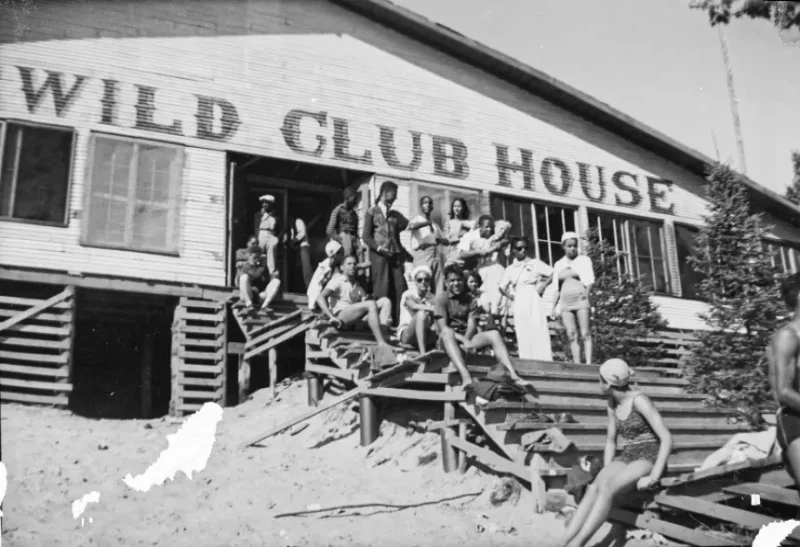Restoring Idlewild, a historic vacation spot for Black people — 110 years later
Share
Explore Our Galleries
Breaking News!
Today's news and culture by Black and other reporters in the Black and mainstream media.
Ways to Support ABHM?
By Ariana Brockington, Today
Restoring Idlewild, a historic vacation spot for Black people — 110 years later

In 1912, prominent members of the Black community began vacationing in Idlewild, a thriving beach town in the forests of Northern Michigan. W.E.B. Du Bois, Madam C. J. Walker and other intellectuals and political figures came to this area, known as Black Eden, where Black families could relax and own property.
They found a safe haven in the Jim Crow era that denied them rights and equality.
“This was a place of refuge and relaxation,” said Susan Matous, who lives in the resort town year-round, in an interview with NBC News correspondent Meagan Fitzgerald.
Matous and partner Blair Evans spoke to NBC News about the cultural impact of Black Eden and their efforts to bring people back to the area.
“A lot of people appreciated coming to Idlewild in one sense, because you escaped from the oppression of being Black, but in another sense, because you can be authentically Black with other Black folks and talk about Black issues,” Evans explained.
He added that being in the community could change their “entire agenda from suffering through being Black to enjoying being Black.”
Continue reading about the cultural importance of Black Eden and the efforts to restore it.
Black Americans haven’t always had the luxury of a vacation spot. Learn about segregation on public beaches. Social oppression was one of the five pillars of Jim Crow.
Follow our breaking news page to keep updated.









Comments Are Welcome
Note: We moderate submissions in order to create a space for meaningful dialogue, a space where museum visitors – adults and youth –– can exchange informed, thoughtful, and relevant comments that add value to our exhibits.
Racial slurs, personal attacks, obscenity, profanity, and SHOUTING do not meet the above standard. Such comments are posted in the exhibit Hateful Speech. Commercial promotions, impersonations, and incoherent comments likewise fail to meet our goals, so will not be posted. Submissions longer than 120 words will be shortened.
See our full Comments Policy here.